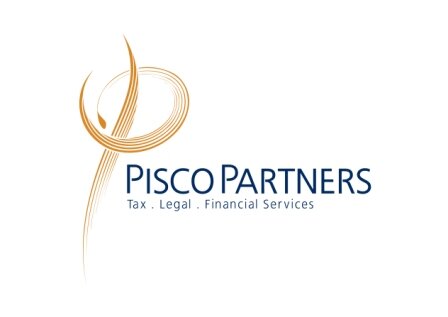Best Nonprofit & Charitable Organizations Lawyers in Ta' Xbiex
Share your needs with us, get contacted by law firms.
Free. Takes 2 min.
List of the best lawyers in Ta' Xbiex, Malta
About Nonprofit & Charitable Organizations Law in Ta' Xbiex, Malta
Nonprofit and charitable organizations in Ta' Xbiex, Malta operate under specific regulations that govern the establishment, management, and dissolution of these entities. The objective is to ensure that organizations uphold their charitable missions while complying with legal mandates. In Malta, nonprofits are typically categorized as voluntary organizations, which include foundations, associations, and entities established primarily for public benefit, without the intent of distributing profits to their members.
These organizations may focus on a wide range of activities, including education, culture, science, health, and social services. They are subject to oversight by relevant authorities to ensure transparency and accountability in their operations.
Why You May Need a Lawyer
While many individuals and groups are motivated by benevolent intentions when establishing a nonprofit, the legal complexities involved can require expert guidance. Common situations where legal assistance may be necessary include:
- Forming a nonprofit: Ensuring compliance with the legal requirements for registration and operation.
- Drafting and reviewing by-laws or constitutions: Creating a solid legal framework for governance.
- Tax compliance: Navigating exemptions and reporting obligations.
- Employment law: Understanding obligations towards staff and volunteers.
- Contracts: Negotiating agreements with donors, partners, and service providers.
- Risk management and liability issues: Protecting the organization and its members from legal exposure.
- Dissolution or restructuring: Managing the legal aspects of closing or reorganizing a nonprofit.
Local Laws Overview
The legal framework for nonprofits in Ta' Xbiex is primarily governed by the Voluntary Organizations Act and related regulations. Key aspects include:
- Registration: Nonprofits must register with the Commissioner for Voluntary Organizations to be recognized legally and gain specific benefits.
- Governance: Organizations are required to adhere to standards of good governance, transparency, and accountability.
- Reporting: Regular financial reporting to the Commissioner for Voluntary Organizations is mandated to ensure compliance.
- Data protection: Adherence to data protection laws under the GDPR is essential, especially when handling personal data.
- Taxation: While many nonprofits enjoy tax exemptions, understanding the intricacies of these exemptions and any relevant conditions is crucial.
Frequently Asked Questions
What is the first step to establishing a nonprofit in Ta' Xbiex?
The first step is to draft a statute or memorandum that outlines the organization’s purpose, governance structure, and operational guidelines. This document is then submitted for registration with the Commissioner for Voluntary Organizations.
Do all nonprofits need to register in Malta?
Yes, for a nonprofit to operate legally and benefit from tax exemptions or public funding, registration with the Commissioner for Voluntary Organizations is required.
What are the benefits of registering a nonprofit?
Registration can provide legal recognition, tax exemptions, eligibility for grants and public funding, and enhanced credibility with donors and partners.
How do I maintain compliance once registered?
Compliance involves regular financial reporting, adherence to governance standards, and updating any changes in the organization's structure or purpose with the relevant authorities.
Can a nonprofit make a profit?
While nonprofits can generate surplus revenue, this must be reinvested in the organization’s charitable activities and cannot be distributed to members or founders.
Are there specific laws about fundraising?
Yes, there are regulations governing fundraising activities to ensure transparency and protect public trust. Nonprofits must comply with these when soliciting donations.
What are the responsibilities of a nonprofit’s board members?
Board members are responsible for ensuring the organization meets its legal obligations, oversees operations, and uses resources effectively in pursuit of its mission.
Is legal advice necessary for managing employees or volunteers?
Yes, legal advice can help in drafting employment contracts, understanding labor laws, and ensuring that volunteer agreements comply with local regulations.
How are nonprofits taxed in Malta?
Registered nonprofits may qualify for tax exemptions, but this depends on meeting specific criteria. Legal advice is beneficial to navigate these tax laws effectively.
What happens if a nonprofit needs to close down?
Dissolving a nonprofit involves legal processes to settle debts, distribute remaining assets in a manner consistent with charitable purposes, and formally deregister with authorities.
Additional Resources
For those seeking further information or assistance, the following resources may be helpful:
- Office of the Commissioner for Voluntary Organizations: The overseeing body for nonprofits in Malta, providing guidance on registration and compliance.
- Malta Business Registry: For statutory filing requirements and changes in organizational documents.
- Data Protection Commissioner: For issues related to handling personal data and GDPR compliance.
Next Steps
If you require legal assistance regarding nonprofit and charitable organizations, consider taking the following steps:
- Consult with a lawyer who specializes in nonprofit law to discuss your specific needs and legal obligations.
- Gather all relevant documents and information about your organization to provide a comprehensive picture to your legal advisor.
- Regularly review your nonprofit’s compliance with legal requirements, and schedule periodic legal audits to preempt potential issues.
- Engage with professional associations or networks of nonprofits that offer support and shared resources.
Lawzana helps you find the best lawyers and law firms in Ta' Xbiex through a curated and pre-screened list of qualified legal professionals. Our platform offers rankings and detailed profiles of attorneys and law firms, allowing you to compare based on practice areas, including Nonprofit & Charitable Organizations, experience, and client feedback.
Each profile includes a description of the firm's areas of practice, client reviews, team members and partners, year of establishment, spoken languages, office locations, contact information, social media presence, and any published articles or resources. Most firms on our platform speak English and are experienced in both local and international legal matters.
Get a quote from top-rated law firms in Ta' Xbiex, Malta — quickly, securely, and without unnecessary hassle.
Disclaimer:
The information provided on this page is for general informational purposes only and does not constitute legal advice. While we strive to ensure the accuracy and relevance of the content, legal information may change over time, and interpretations of the law can vary. You should always consult with a qualified legal professional for advice specific to your situation.
We disclaim all liability for actions taken or not taken based on the content of this page. If you believe any information is incorrect or outdated, please contact us, and we will review and update it where appropriate.











